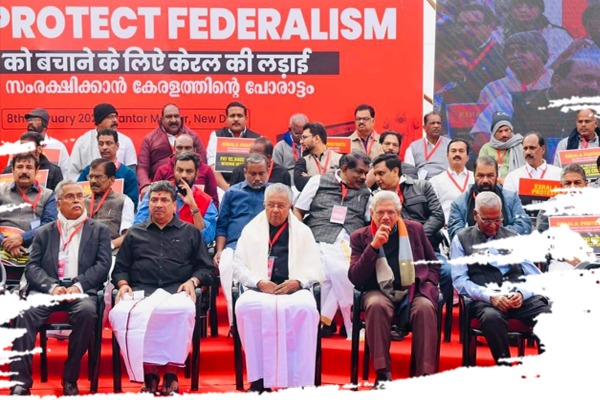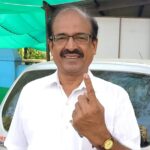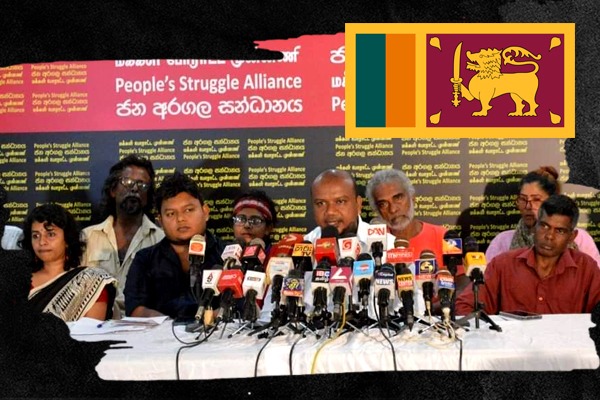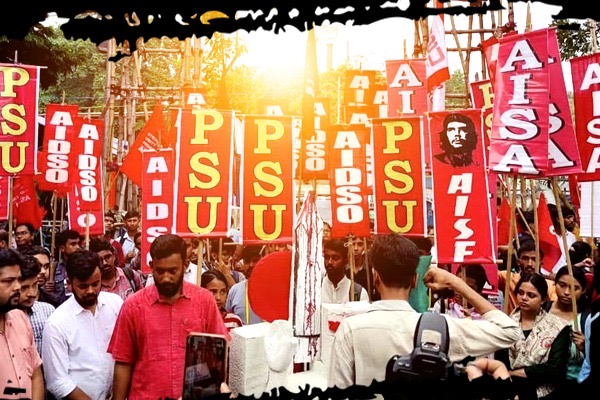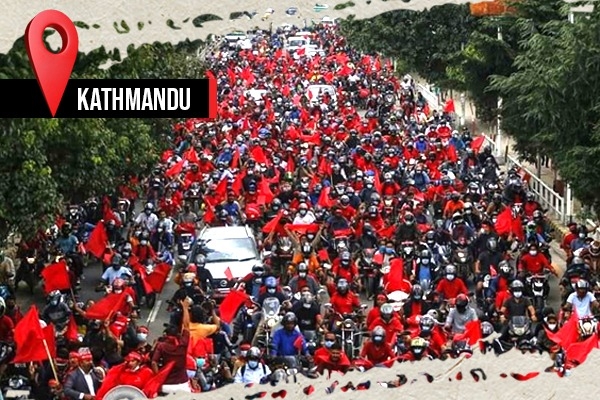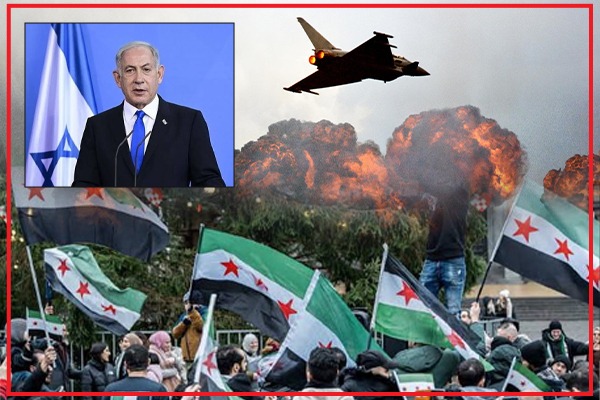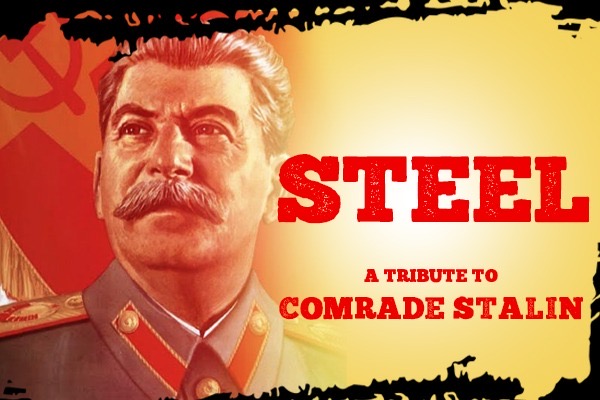Democracy in India has stood the test of time over the last seventy five years, proving Mr. Winston Churchill completely wrong who had doubts about the ability of Indians to manage their own affairs in a modern way. In his own words,
“If independence is granted to India, power will go to the hands of rascals, rogues, freebooters; all Indian leaders will be of low calibre and men of straw. They will fight amongst themselves for power and India will be lost in political squabbles”
– Winston Churchill, UK
The foundations of the institution of democracy in India has the legacy of the freedom struggle which had a unique character of involving all sections of society that paved way for an egalitarian and secular constitution, that had the ability to bring together people with diverse cultures and faiths together with a new pan Indian identity. Governments came and went, but the no one dared to disturb the basic tenets of the constitution. The constitution remained sacrosanct.
Another aspect that did not change in the Indian political arena was her foreign policy. By and large all the Governments pursued a policy of non-alignment in the international affairs keeping good relations with almost every country. We always believed in peaceful co-existence.
Similarly all the Governments believed that they had a responsibility of taking care of the poor and the marginalised sections of the society. The concept of ‘welfare state’ was continued in various forms, without disturbing the main characters of a capitalistic structure. Some times in the name of bringing in socialistic measures, the importance of public sector enterprises increases and on other times the private sector got more prominence. More or less the economic structure of India remained a form of ‘Mixed economy’.
A BIG CHANGE
The Parliament elections of the year 2014 changed all that. The ruling party was routed with serious allegations of corruption. The young voters with high aspirations in hearts voted on the charisma of Mr. Narendra Modi, who headed the main opposition party, and promised a lot of things including good life. After a gap of almost thirty years a single party, Bharatiya Janata Party, BJP, got an absolute majority.
During the election campaign Mr. Narendra Modi promised several things:
- Zero corruption.
- Cheaper petrol ( Petrol at that time was Rs 70/- a liter)
- Cheaper Gas cylinder ( A gas cylinder was Rs 400 then)
- Retrieval of black money from the Swiss bank.
- Two crore (Twenty Million ) jobs every year for the youth.
- Lower income tax.
- Better general tax system.
Surprisingly the first thing that Mr. Modi did after assuming the office of the Prime Minister of India was to abolish the institution of ‘Planning Commission’. In its pace a new entity, Niti Ayog’ (Policy commission) was established. Even ten years after its establishment, no one knows the real function of Niti Ayog!
It seems that Mr. Modi was in a hurry to break all the foundations of a planned economy that took care of all sections society taking care of the proper distribution of wealth across the country. A new form of capitalism was taking shape in India under the leadership of the new Prime Minister, who had come from the school of thought initiated by the second leader (Sar Sanghchalak) of the Rashtriya Swayam Sevak Sangh (RSS), Mr. M.S. Golwalar, who wrote in his book, “We or Our Nationhood Defined” that India should adopt a unitary form of governance discarding the federal structure. Golwarkar was against any form of planned economy.
All powers soon came to a single office, the PMO. And in the PMO, only one man Mr. Narendra Modi decided everything. The corporate controlled media made all efforts to project Mr. Narendra Modi as the new hope and face of the development of India. Very soon the media had no hesitation in declaring Mr. Modi as “ Vishwa Guru” (The world leader).
In its pursuit to concentrate all powers with himself, Mr. Narendra Modi forgot the golden rule of collective leadership, that a good leader listens to all before taking an important decision. All of a sudden one night at 9.00 pm Mr. Modi declared the demonetisation of the high denomination notes of Rs. 1000 and Rs 500. About one hundred and fifty people died in the process of depositing their old currency notes. Around 2,50,000 medium and small entrepreneurs lost their livelihood, creating a huge unemployment across the nation. At the same time few corporate houses and few political leaders close to the ruling party made huge profits.
As if the impact of demonetisation was not enough, nature played its taunt against us. Arrival of corona deprived the common man of the meagre incomes also. The chasm between the haves and the have-nots grew to unbelievable levels. Just 1% of the top rich today own 40% of all the wealth of the nation in India.
Again as a leader in hurry Mr. Modi announced a nationwide lock down suddenly without giving any proper chance to the millions of migrant labour and their family members to return home. Millions suffered for days before reaching home.
The most unwise decision of the Modi Government was the implementation of Agniveer scheme in the armed forces. This came as a cruel joke for the hundreds of thousands of aspirants who were looking forward to a career in the armed forces. No body knows why Mr. Modi brought this scheme. It helps no one, neither the army nor the army men! After four year stint in the army, most of the young ex army recruits would be at the mercy of the corporate sector for their livelihood. A clever ploy where the young men and women are trained at the expense of the Government and serve the interests of the corporate sector. India has reached the summit of monopoly capitalism where only two corporate houses dictate all the policies of the Government.
The two consecutive victories generated dictatorial tendencies in Mr. Modi who now behaves less like a Prime Minister and more like a Fuehrer!
TENURE OF MR. NARENDRA MODI
Elections are a time when the incumbent party (party in power) has to give a progress report of its tenure. Mr. Modi in his speeches is asking for another term of five years for himself (Modi’s gurantee) so that he can make India another super power. He is not at all talking about the performance of his government.
Let us have a look at his promises and the action taken on those promises –
- Zero corruption…. Rafael deal is a burning example of the corruption of Modi regime!
- Cheaper petrol (Petrol at that time was INR 70/- a liter)….. Petrol went beyond INR 100 !
- Cheaper Gas cylinder (A gas cylinder was Rs 400 then)….. Gas cylinder touched Rs. 1100.00 highest ever!
- Retrieval of black money from the Swiss bank…. Not a single rupee has come back from the Swiss banks. In fact the quantum of balck money has increased many fold!
- Two crore (Twenty Million ) jobs every year for the youth. ……. This would mean twenty crore ( two hundred million ) jobs in the entire tenure of Mr. Modi. Only seven lakh (7,00,000) jobs were given in last ten years !
- Lower income tax….. Modi regime has not done anything in this field.
- Better general tax system…. The GST introduced by Modi Government has broken the back bone of small and medium entrepreneurs. Even food items have not been spared.
THE 2024 LOK SABHA ELECTIONS
The challenge before the opposition in this election is to check the dictatorial regime of Mr. Narendra Modi. All institutions of the state have now become subservient to the office of PMO ( Prime Minister’s Office). Collective leadership has evaporated in the heat of hero worshiping of Mr. Modi. Even some of members of the ruling party might have felt the discomfort of working under a dictatorial leadership, yet for the fear of reprisal they keep silent.
One good development in this election is the ‘coming together of all parties’ keeping away their differences and ideologies. It takes a lot of courage to do that. In fact Mr. Modi and his party was banking on the disunity of the opposition to ensure another great victory in the 2024 general elections. Unfortunately for them, 28 opposition parties could come together and overcome this first road block and formed the INDIA ( Indian National Developmental Inclusive Alliance). Modi regime was so rattled by the name INDIA that it started opposing the name India itself in the political debates. They tried their best to bring forth the name Bharat, in all political debates but failed miserably! Mr. Modi forgot that the constitution of India has both the names, India and Bharat!
The second road block for the opposition was seat adjustments in the states. Let us not forget that even if this is a general election (at national level ), elections are actually fought at local level where local arithmetic has a lot of importance. By successfully agreeing to seat adjustments in big states like UP, Bihar, Maharashtra, Rajasthan, Karnataka, Tamilnadu and some other states the INDIA alliance presented a picture of unity in front of the electorate of the country.
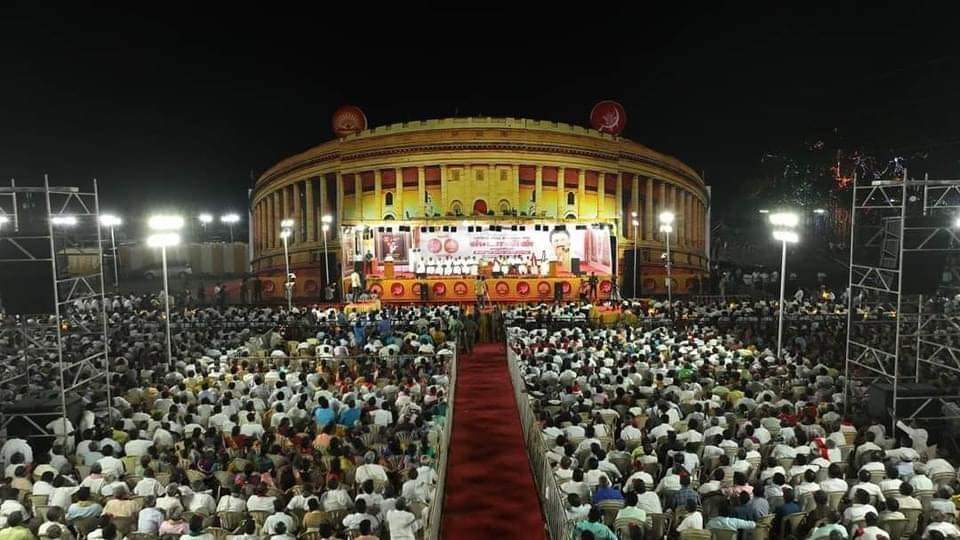
Recently in one of the interview Mr. Prakala Prabhakar, a veteran economist (from London School of Economics) who happens to be the husband of the Union Finance Minister Mrs. Nirmala Sitaraman, has categorically spoken that it would be very difficult for the BJP to cross the figure of 230 in the Lok Sabha (Lower house of the Parliament) . While speaking about the situation in the country he said that the main issues of the present elections are, Unemployment, Inflation, Insecurity and Corruption. Surprisingly Mr. Narendra Modi in the year 2014 had won the election on the slogan of “zero corruption”.
It was a lightening stroke from the blue for Mr. Modi when his game plan to hijack the Chandigarh Mayoral election was caught on the camera. The Supreme Court of India came down heavily upon the returning officer who happens to be an office bearer of BJP, calling it the murder of democracy. Mr. Modi lost the battle of the war. The second battle was lost when just before the elections, the dirty game of ‘Electoral Bonds’ was exposed again by the Hon. Supreme court of India. In spite of all the best efforts of the Modi Government to postpone the whole issue, at least beyond the Parliament elections, the Supreme Court struck down its decision and exposed the institutional corruption involved in it.
The whole country was surprised when Mr. Parakala Prabhakar called “Electoral Bond” issue as the world case of corruption in the history of independent India. That was a big call for a political party in power that came to power in the name of curbing corruption.
Finally it can be said very comfortably that the going for the ruling party under the leadership of Mr. Narendra Modi, would be very tough this time. As the reports are coming from the ground level after the first few phases of the voting, people are silently working to defeat the ruling party. In spite of his best efforts to polarise the country on communal lines, Mr. Modi is finding it difficult to lure the neutral, undecided voters, who never speak up their minds.
The unemployed youth, the hard pressed mothers and house wives and the helpless citizens might decide the outcome of this election. These are the people who may save the democracy of India for the future generations!

